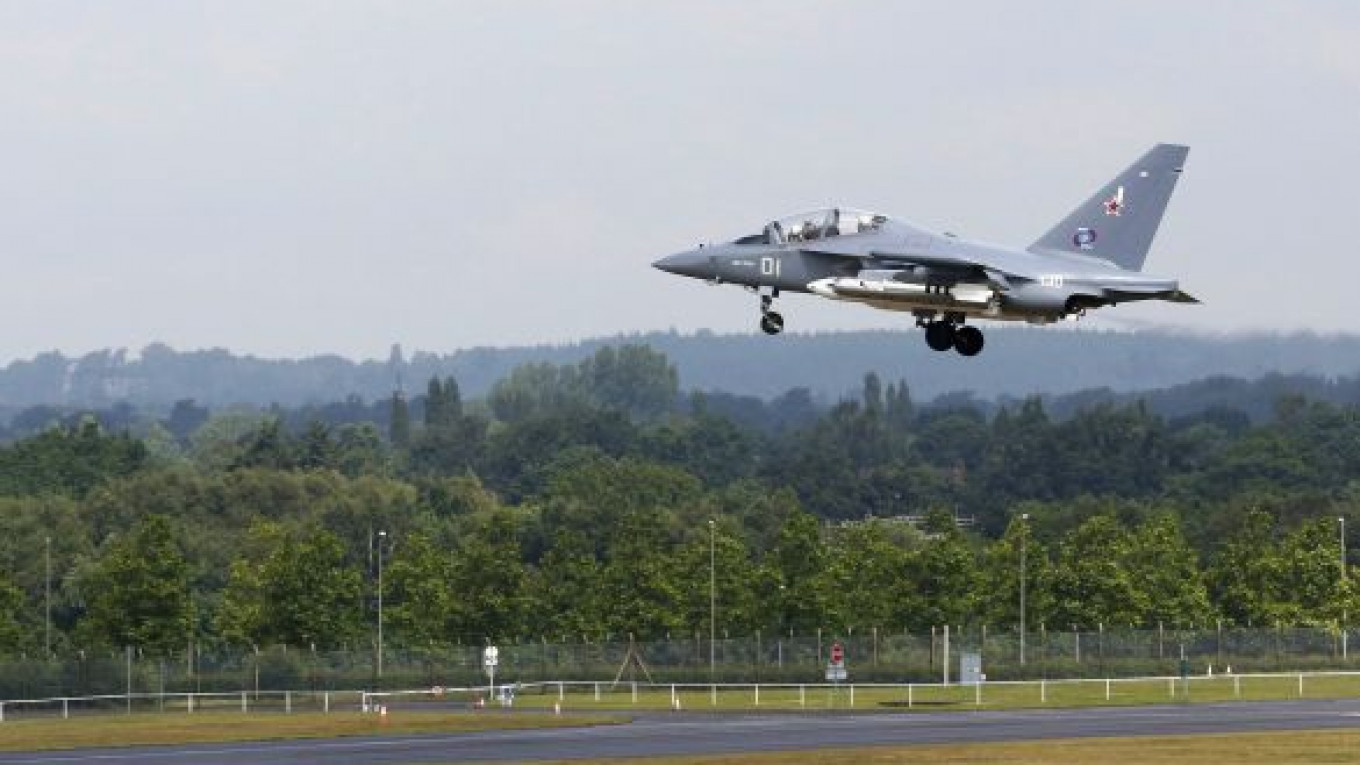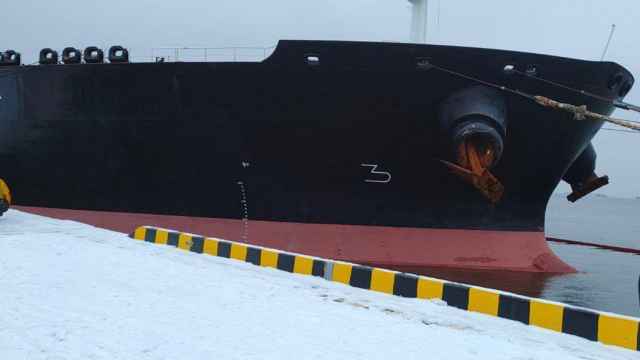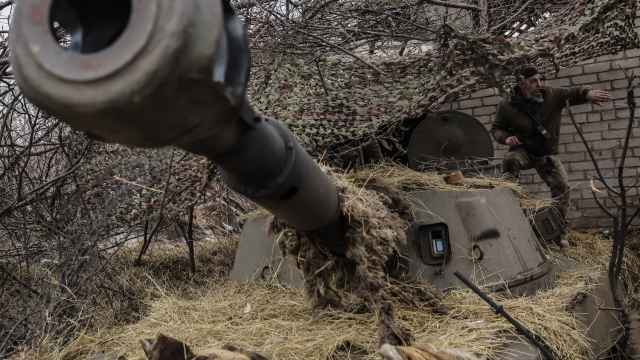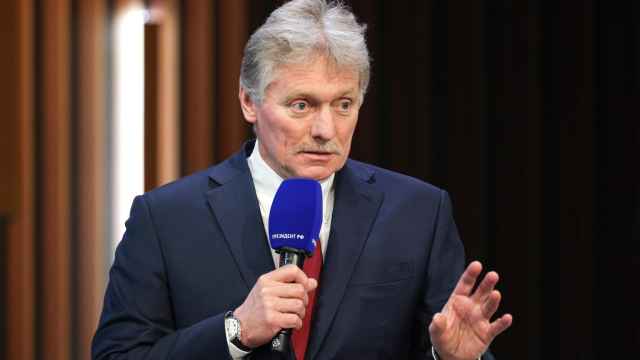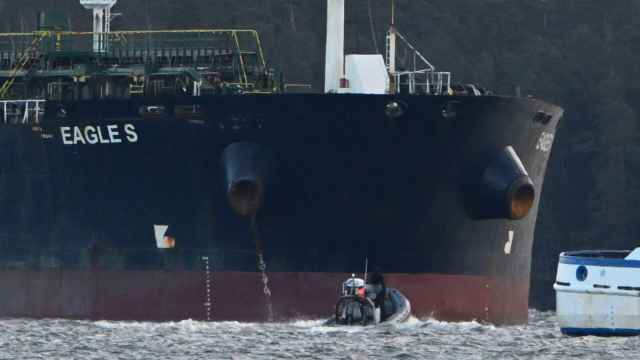Russia will remind the world of its air power history at the Farnborough Air Show next week as it battles to shift attention from the fatal crash of a new Superjet 100 plane, a disaster that could stall efforts to revive its aviation industry.
Crowds at the flagship industry event are expected to be wowed by a display from a pair of Russian Su-27 Flanker fighter jets, which came to symbolize the might of the Soviet Union and remain a favorite for their spectacular stunts.
Yakovlev Yak-130 fighters will also fly and be on static display despite reports that nearly 40 are bound for war-torn Syria, and a pavilion will be dedicated to Russia's MS-21 passenger aircraft, which is in development.
Yet interest is bound to center on the fate of the Superjet 100, the first civil plane built by Russia since the fall of the Soviet Union and the subject of an ongoing investigation following a crash in Indonesia that killed 45 people.
Indonesian authorities are looking into the causes of the crash. Pilot error and technical failure are two possibilities.
If the cause was the latter, demand for the midsize Superjet, and perhaps for the MS-21, due to enter the market in 2017, could be wiped out.
United Aviation Corporation is desperate for the incident to be blamed on pilot error, taking the heat off Russian plane manufacturing.
That verdict would echo a report published Thursday on the 2009 Air France crash, which killed 228 people. Investigators blamed the incident on a combination of pilot error and faulty speed sensors.
"[Superjet] will be very diplomatic about the accident and say they cannot say anything while the investigation is under way," said David Learmount, safety and operations editor at Flight Global, commenting on how parent group Superjet International would conduct business at Farnborough.
"[The investigators] have not at this point found anything wrong with it. It was a new airplane, and modern airplanes have never been safer. … When airplanes crash, it is people that do it," he added.
Superjet International, a joint venture between Russia's Sukhoi and a division of Italy's Finmeccanica, is considering displaying a grounded Superjet 100 at Farnborough and will continue the task of drumming up orders for the plane, which has yet to be picked up by mainstream Western carriers.
"You move forward aggressively; that's all you can do," said Richard Aboulafia, an analyst at U.S.-based Teal Group. "The investigation will show that it is not the product, [that] it was properly certified. They will say [to potential buyers] 'Carry on and buy the plane.'"
The Superjet 100 is at the heart of Russia's plans to revive its aviation industry. Its military aircraft and helicopters have also received a sharp upturn in investment alongside the civil arm.
President Vladimir Putin witnessed a demonstration of the Superjet 100 at the Paris Air Show last year.
The MS-21 is being designed to beat the next generation of Boeing and Airbus planes on timing and price.
But all that would count for little if customers and flyers did not trust the plane to remain in the sky.
Russian aircraft have been involved in a spate of accidents in recent years, though most have involved aging Soviet models.
Wreckage of the Superjet 100 was found strewn across a mountain slope in West Java, Indonesia.
The plane lost contact with air traffic control during a demonstration flight on May 9.
Russian fears about the outcome of the investigation have been evident in its early stages.
Local media in Southeast Asia reported that the Indonesian government turned down a request to send the flight data recorder, also known as the black box, back to Russia.
Tabloid newspaper Komsomolskaya Pravda then reported that the United States had brought down the aircraft in an act of industrial sabotage, the latest in a series of recent claims and counter-claims that have soured U.S.-Russia relations.
Initial findings published by Indonesia's National Transportation Safety Committee have included recommendations for improved preparation and training for demonstration flights but stopped short of telling operators of the Superjet such as Russian airline Aeroflot to ground aircraft.
"It is too early to pass judgment. The investigation is ongoing. [But] the recommendations give a hint that everything was OK with the airplane," said a spokeswoman for United Aviation Corporation, which includes Superjet manufacturer Sukhoi.
The doomed Superjet flight was one of a series of demonstrations across Asia intended to seek new buyers for the plane, which has won orders from Indonesia's Kartika Airlines and Sky Aviation.
So far, neither carrier has canceled or delayed its order, according to local media reports.
"[The Superjet] had not planned to fly in a mountainous zone," the United Aviation Corporation spokeswoman said. "The flight was supposed to be performed near the airport. The pilot exceeded the zone. … 'Why' is for the investigation to look into."
The captain of the plane was Alexander Yablontsev, who was the pilot for the first Superjet test flight, in May 2008, Itar-Tass reported.
A Message from The Moscow Times:
Dear readers,
We are facing unprecedented challenges. Russia's Prosecutor General's Office has designated The Moscow Times as an "undesirable" organization, criminalizing our work and putting our staff at risk of prosecution. This follows our earlier unjust labeling as a "foreign agent."
These actions are direct attempts to silence independent journalism in Russia. The authorities claim our work "discredits the decisions of the Russian leadership." We see things differently: we strive to provide accurate, unbiased reporting on Russia.
We, the journalists of The Moscow Times, refuse to be silenced. But to continue our work, we need your help.
Your support, no matter how small, makes a world of difference. If you can, please support us monthly starting from just $2. It's quick to set up, and every contribution makes a significant impact.
By supporting The Moscow Times, you're defending open, independent journalism in the face of repression. Thank you for standing with us.
Remind me later.


